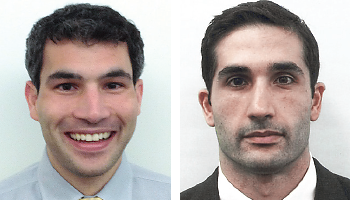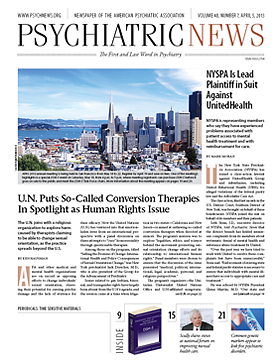Woody Allen once stated, “I am not afraid of death, I just don’t want to be there when it happens.” Many residents and physicians relate to this sentiment as the death of our patients from suicide, accidents, or chronic illness is our worst fear as an outcome. In fact, our medical training emphasized this idea as we focused on lifesaving measures, with little attention focused on the end of life. Furthermore, as psychiatrists, death is constantly on our minds as we screen for suicidal ideation in our interactions with patients.
Unfortunately, as trainees, we will not be guarded from exposure to death. Research has shown that over 60 percent of residents will encounter suicide during their training. As residents who have had firsthand experience and witnessed our colleagues struggle with this monumental event, we felt it important to suggest a few pearls to help during this process.
“Don’t worry alone.” It seems to be such a basic concept of training, but when a patient dies, it is essential to seek out guidance. Training directors, supervisors, mentors, and colleagues are there to help in times of stress. They can provide support, share personal experiences, and create a space for you to discuss your feelings. When you are ready, these individuals can also review your documentation, direct you regarding possible legal implications, and help you understand any mistakes from a medical perspective so that you can learn from the case.
“Stay healthy.” As residents, our schedules are incredibly hectic as we balance service obligations and our personal lives. The stress of a loss can add another burden to our already filled plate. It is imperative that you ensure you are getting enough sleep, eating well, and taking time to relax. Some residents have chosen to take time off from work, which can have its advantages and disadvantages, both of which should be discussed with a supervisor.
“It’s Normal.” After any loss or death of a person we know, there is a period of normal grief. As physicians we can have feelings of responsibility and guilt and may replay what we could have, should have, or would have done differently. We may also be stirred by this death and reflect back to other losses in our lives, which may augment our feelings about this loss. Trainees should be aware that it will take time to get back into the swing of things and should hesitate before diagnosing feelings as pathologic.
“What now?” Residents may feel a strong desire to reach out to family members of their patients after a death. What should I say to them? Should I contact them through an e-mail, letter, phone call, or meeting? Should I go to the funeral or wake? These questions are very complex, so each case needs to be examined on an individual basis. Trainees should discuss all options with their supervisors to get guidance and be aware that this contact may have positive or negative effects in the medical-legal sphere.
“Search for Meaning.” After any death, we have a tendency to search for meaning in the tragedy. One may find solace in the questions of why did this happen to this patient or why did it happen to me by finding different outlets to process it. Some residents have taken time to lecture on the topic to help other trainees prepare for or deal with a patient dying, while others have written about their experience. Trainees should also consider finding a way to say goodbye to their patients, which could include privately visiting a gravesite, lighting a candle, etc., to achieve closure.
The death of a patient can be a scary and startling experience, but is very likely to occur during your professional career. As residents, we can feel alone in the dark on how to react and move forward, but we need to take advantage of our training status by seeking help from mentors and other opportunities for support. Loss can have different effects on each of us, but we need to make sure to take care of ourselves so we can take care of others. ■

